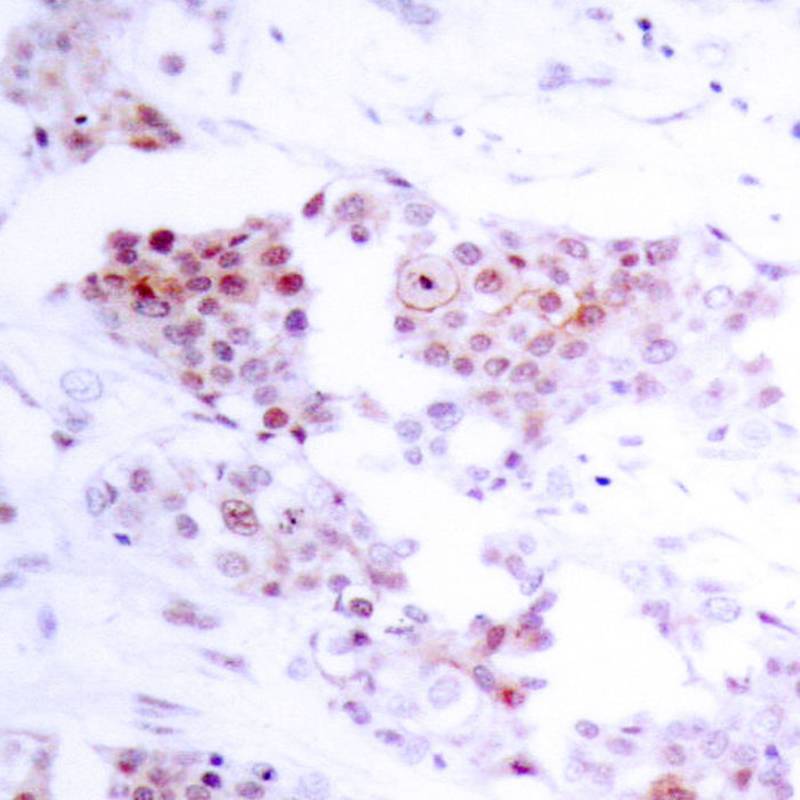Product Detail
Product NameMEF2a(Ab-319) Antibody
Host SpeciesRabbit
ClonalityPolyclonal
PurificationAntibodies were produced by immunizing rabbits with synthetic peptide and KLH conjugates. Antibodies were purified by affinity-chromatography using epitope-specific peptide.
ApplicationsIHC
Species ReactivityHu Ms Rt
SpecificityThe antibody detects endogenous level of total MEF2A protein.
Immunogen TypePeptide-KLH
Immunogen DescPeptide sequence around aa.317~321 (V-T-T-P-S) derived from Human MEF2A.
Target NameMEF2a
ConjugateUnconjugated
Other NamesMEF2; Serum response factor-like protein 1;
Accession NoSwiss-Prot: Q02078
NCBI Protein: NP_001124398.1
Uniprot
Q02078
Gene ID
4205;
Concentration1.0mg/ml
FormulationSupplied at 1.0mg/mL in phosphate buffered saline (without Mg2+ and Ca2+), pH 7.4, 150mM NaCl, 0.02% sodium azide and 50% glycerol.
StorageStore at -20°C for long term preservation (recommended). Store at 4°C for short term use.
Application Details
Predicted MW: 54kd
Immunohistochemistry: 1:50~1:100
Immunohistochemical analysis of paraffin-embedded human breast carcinoma tissue using MEF2A(Ab-319) Antibody #21040
The process of differentiation from mesodermal precursor cells to myoblasts has led to the discovery of a variety of tissue-specific factors that regulate muscle gene expression. The myogenic basic helix-loop-helix proteins, including myoD (MIM 159970), myogenin (MIM 159980), MYF5 (MIM 159990), and MRF4 (MIM 159991) are one class of identified factors. A second family of DNA binding regulatory proteins is the myocyte-specific enhancer factor-2 (MEF2) family. Each of these proteins binds to the MEF2 target DNA sequence present in the regulatory regions of many, if not all, muscle-specific genes. The MEF2 genes are members of the MADS gene family (named for the yeast mating type-specific transcription factor MCM1, the plant homeotic genes 'agamous' and 'deficiens' and the human serum response factor SRF (MIM 600589)), a family that also includes several homeotic genes and other transcription factors, all of which share a conserved DNA-binding domain
Kato Y, et al. (2000)J Biol Chem. 275(24): 18534-18540.
Zhao M, et al. (1999)Mol Cell Biol. 19(1): 21-30.
If you have published an article using product 21040, please notify us so that we can cite your literature.



 Yes
Yes



